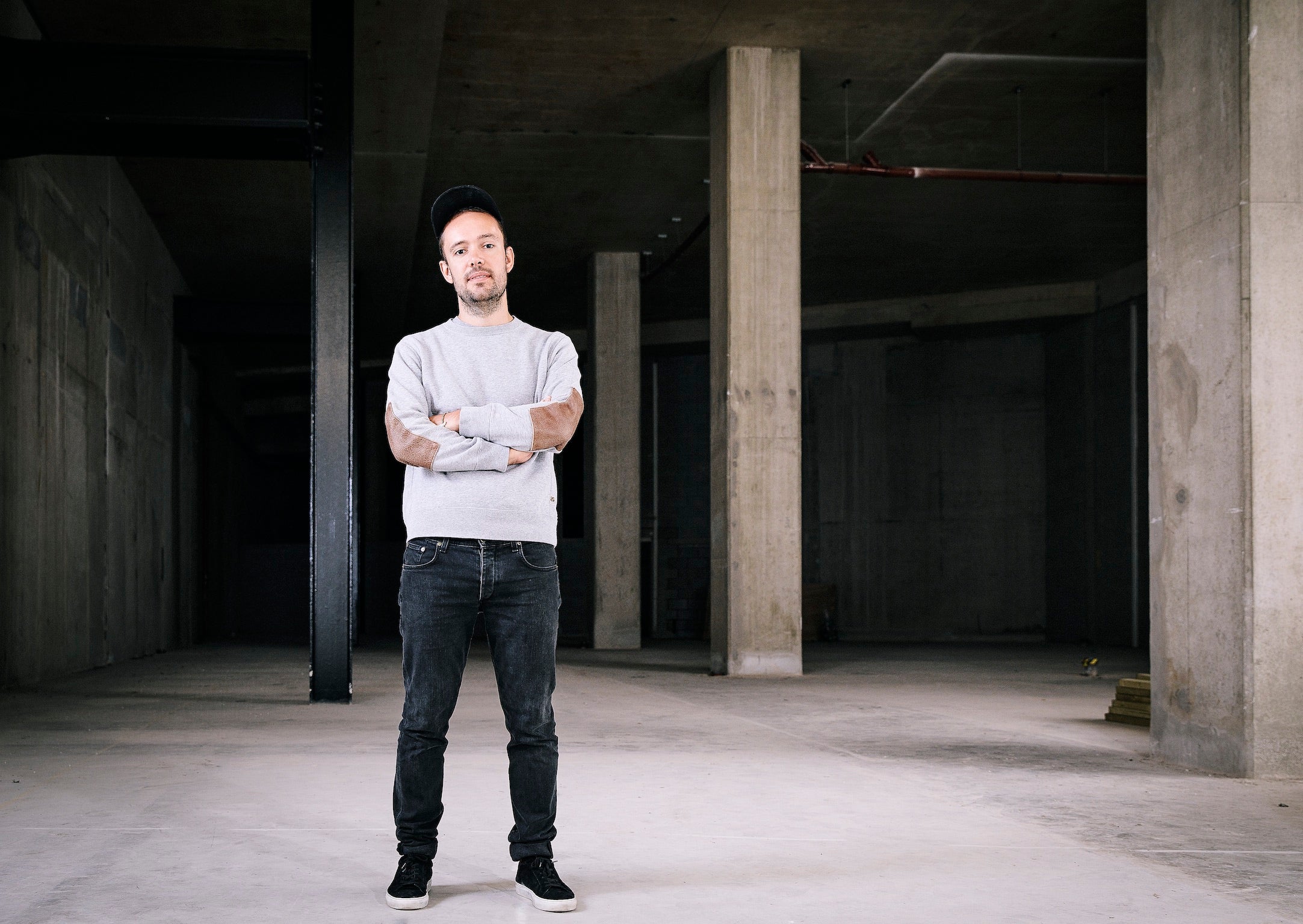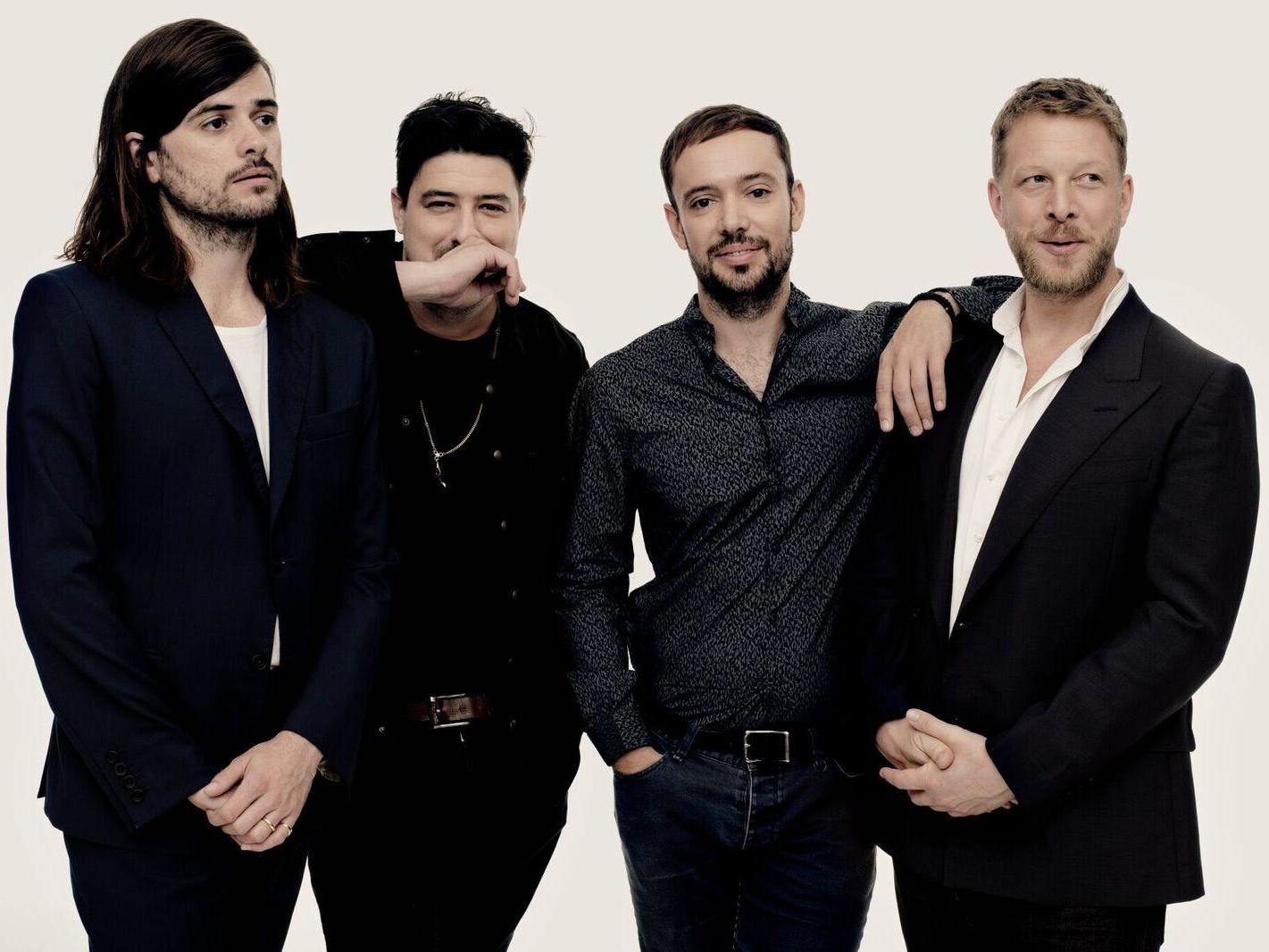The indie folk superstar using food to save the UK’s live music venues
When he’s not leading Mumford and Sons, Ben Lovett is combining sound and hospitality in his latest bid to protect grassroots venues across London, writes Hazel Sheffield

When Ben Lovett of Mumford and Sons decided to set up his own live music venue in south London in 2016, he never intended to become a restauranteur. Lovett is a serial entrepreneur – he was selling tickets to parties in his teens, had an IT business before he went to university and started the label and publishing company Communion before Mumford and Sons ever played a note.
Omeara, a 325-capacity venue near London Bridge, was intended to be his answer to the decline in grassroots venues in the capital and a place for young bands to try out their craft. But he quickly realised that it would take more than live music to make the business stack up. He decided he needed to run the bars and serve food: businesses that could make money even when the stage was empty.fc
In March, he will open the doors on his second venue in a multimillion-pound development at King’s Cross. Goods Way is built on Lovett’s business model for the industry, one that he describes as concentric circles of live music at the centre, insulated by restaurant businesses that operate seven days a week to bring in cash.
“There are a lot of music companies that have bars within the venue and they see them as supplementary offerings to the show, then you have people who have bars and restaurants who have DJs or an open microphone, but there isn’t really a blueprint for a company that is doing both,” he says. “To do it well you have to be good with the music and good at the hospitality.”
Grassroots music venues have been under threat in the UK in the last decade from a combination of rising costs and declining revenues. While the number of people attending concerts grew in by 29.1 million, or 17 per cent, in 2017 alone, the number of venues declined by 35 per cent between 2007 and 2015, according to the Music Venue Trust.
Ben has been outspoken on the need for the government to support grassroots music venues in the UK. In 2019, he told a Department of Culture, Media and Sport inquiry that London risks “trending down against countries and cities that I think we like to believe we are on a par with” for live music, which could impact the capital’s position in the long term.
For every £10 spent at a grassroots music venue, £17 is spent elsewhere in the night time economy, supporting bars, restaurants, public transport, taxi firms and takeaways, the Music Venue Trust says. Ben’s own idea was to bring some of that money inhouse, expanding the revenue streams of the venue to include more than just a few warm pints in plastic cups during a 90-minute gig.
Luckily for Lovett, his big brother Greg has had a long and successful career in hospitality, working as the finance director for Soho House in North America before returning to home turf to become finance director of the Ned, a hotel in the City of London that opened in 2017 as a joint venture between Soho House and the Sydell group.
The idea for Venue Group, as Lovett’s business is called, began in conversations around the Christmas dinner table between the two brothers and their father David Lovett, a former consultant specialising in the turnaround of failing businesses, five years ago.
At the time Ben had been working with Communion, the music promoter he set up in 2006, in the US. “You couldn’t bring an artist you wanted to work with into a venue that was owned by Live Nation, because if the artist wanted to play there, they needed to play the show with Live Nation, not with an independent promoter,” he explains. “It’s called ‘closed rooms’.”

Ben thought one way to solve the problem would be to control the venue and make it open so that anyone could play there, regardless of label, promoter or other affiliations. “I wanted to make it open, which means democratising the whole thing and allowing promoters of any shape or size to work with artists they believe in.”
The brothers decided to go into business together, with Greg teaching Ben about the hospitality industry and Ben teaching Greg about shows and promotion. “We built a hybrid model, putting on shows based on artistic merit rather than profitability,” he says.
Their father David acts as chair of Venue Group. “He guided us when we were setting the company up,” Ben says. “We do this very by the book. He thinks that valuations based on anything other than profitability are nonsense.”
So far, their strategy has worked. In 2019, Omeara put on 130 shows, selling out on numerous occasions. As well as the project at Goods Way, the Venue Group is working on a project to build an 8,000-seat amphitheatre in Huntsville, Alabama.
Rather than taking private equity investment or growing the company through debt, the brothers have continued to hold the company privately, financing each project as a separate venture. “I want this to be held up as an investable business,” he says. “The idea of making it profitable wasn’t to make money, it was to prove that this was more than a passion project.”
A month before the opening of the venue, Ben takes me for a look around the space. At the entrance a New Orleans-style balcony encircles the Courtyard, which has space for street food vendors including Breddos Tacos and The Duck Truck. We pass through a narrow MDF corridor filled with the smell of fresh paint and sawdust, stepping around buckets of plaster into the bones of a dark amphitheatre.
The venue is served by Sweetwater, a speakeasy that on the day of our visit is filled with builders in high-vis jackets eating their sandwiches. Ben explains that punters will be able to drink cocktails in Sweetwater and get food delivered to them from any one of the vendors in the courtyard. “This is where a lot of the value is captured economically,” he says. “A key part of the concentric circles. It has to be better than the other things you can get in the area.”
In time, Ben believes that cafes, vintage shops, vinyl stores and other retail will spring up around “the first two circles” of music and food, he says. “Venues have a huge social and economic and cultural impact on an area,” he says.
He hopes that, freed from the closed rooms, independent artists will be able to tour more easily. “If we could create a new landscape of venues,” he says, “I wonder what impact that would have on the music people listen to?
Join our commenting forum
Join thought-provoking conversations, follow other Independent readers and see their replies
Comments